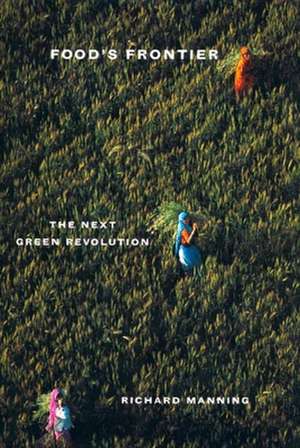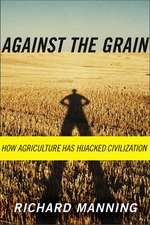Food′s Frontier – The Next Green Revolution
Autor Richard Manningen Limba Engleză Paperback – 4 oct 2001
Preț: 209.25 lei
Nou
Puncte Express: 314
Preț estimativ în valută:
40.04€ • 41.92$ • 33.13£
40.04€ • 41.92$ • 33.13£
Carte tipărită la comandă
Livrare economică 05-19 aprilie
Preluare comenzi: 021 569.72.76
Specificații
ISBN-13: 9780520232631
ISBN-10: 0520232631
Pagini: 238
Dimensiuni: 145 x 209 x 15 mm
Greutate: 0.25 kg
Editura: University of California Press
ISBN-10: 0520232631
Pagini: 238
Dimensiuni: 145 x 209 x 15 mm
Greutate: 0.25 kg
Editura: University of California Press
Descriere
Provides a survey of agricultural research projects underway in Ethiopia, Zimbabwe, Uganda, India, China, Chile, Brazil, Mexico, and Peru. This book starts from the premise that the 'Green Revolution' which averted mass starvation a generation ago is not a long-term solution to global food needs and has created its own very serious problems.














